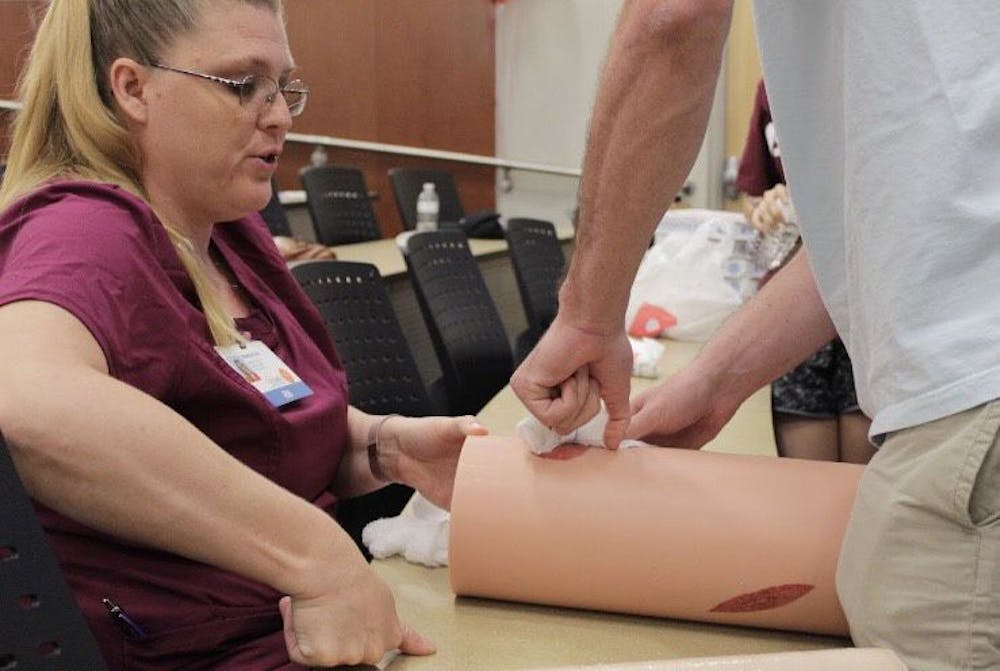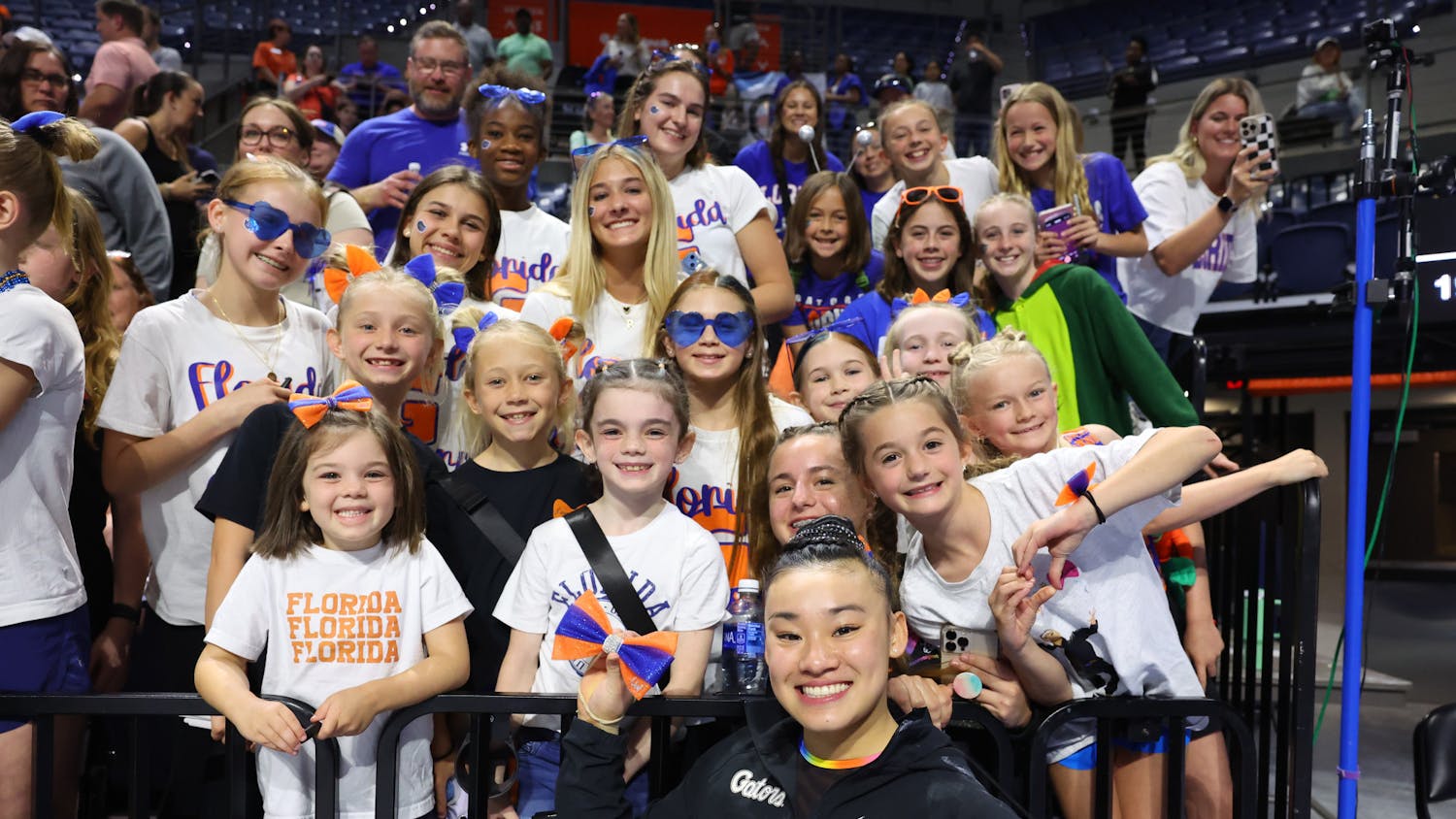UF students and faculty can access about 50 emergency kits on campus to stop bleeding in 30 seconds.
The Bleeding Control Kit program added small plastic packages of bleeding control supplies around campus for students to use in case of emergencies like shootings, said Dawson Cowen, the Gator Emergency Medical Response Unit assistant director.
The Gator Emergency Response Unit has been installing the first batch of kits in existing automated external defibrillators on campus since Oct. 15, Cowen said. The kits are already available at Marston Science Library, Library West, the Reitz Union and the College of Public Health and Health Professions.
“Our goal is to allow the average person to deploy them, if needed, with very minimal training,” Cowen said.
The goal is to install a total of about 140 kits into every on-campus defibrillator and in University Police patrol cars by Spring, Cowen said. The program costs about $1,200 and was funded by Student Government.
The kits include a tourniquet, medical tape, a trauma pressure bandage, protection equipment like gloves and a mask, an emergency blanket and an instruction card for how to use the kit properly, Cowen said.
Cowen said he decided to push for the kits on campus in order to make UF safer for faculty and students. He used his expertise as an emergency medical technician to determine which supplies should be included.
Cowen said he and Dr. Benjamin Abo, an emergency physician, designed the kits to treat external bleeding, including a severe gash, gunshot wound or even the loss of a limb.
The unit will manage the kits and is developing a free training program to teach people how to use the devices inside the kits properly, Cowen said.
The group is assembling and installing the kits as the supplies come in, said University Police Ofc. Scott Silver.
“Our goal is to save someone’s life, should it ever become necessary,” Silver said. “Hopefully, it does not.”
Julia Acker, a 20-year-old UF health education and behavior junior and an emergency medical responder, said the kits won’t be necessary for students on a day-to-day basis but having them handy is extremely beneficial.
With a rise in emergencies like mass shootings, Acker said she thinks the kits would help save more lives.
Although someone who doesn’t follow the kit’s directions could do more harm than good, Acker said it is better for students to have the kits on campus than to not have them at all.
“These kits would be of use when there are more bleeds than resources,” she said.






